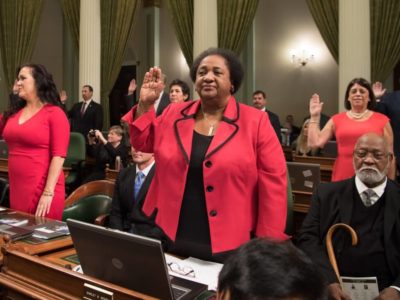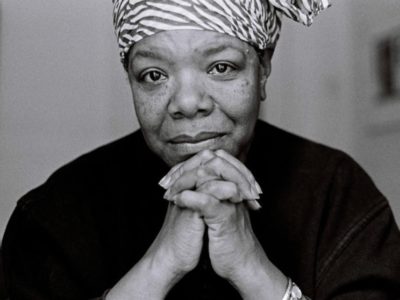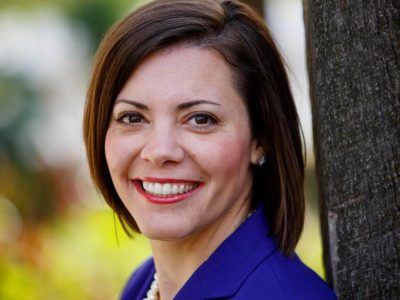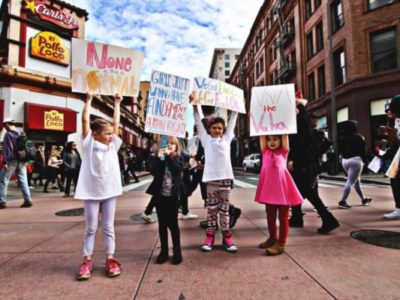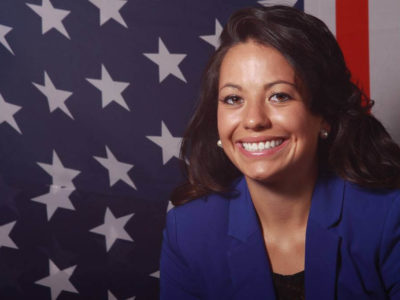Shirley Weber never planned on running for office but knew she had the power and the voice to advocate for marginalized communities. She stands firm that with an education and understanding of what’s happening in your local community, change is possible. From educator to Assembly member, she’s had her share of difficulties as a women of color with a seat at the table. And as she leaves her mark, she hopes her work will inspire more women to fight the good fight.
ASSEMBLY MEMBER SHIRLEY WEBER CAREER TIMELINE
1970: Earned her B.A. at the University of California, Los Angeles
1971: Earned her M.A. at UCLA
1975: Earned her Ph.D in communication at UCLA
2002–2006: President of the National Council for Black Studies at San Diego State University
2012: Elected into the California State Assembly and currently represents the 79th Assembly District
Q&A WITH POWERFUL WOMEN LEADER ASSEMBLY MEMBER SHIRLEY WEBER
Q: At College Magazine we’re working together with EMILY’s List, Emerge America, Human Rights Campaign, Higher Heights, She Should Run, Running Start, Victory Fund and IGNITE on an initiative to fight for equal representation in congress called “50 by 2050.” What are your thoughts on the goal of achieving 50% of women in Congress by 2050?
A: If you don’t set a goal you’ll never get there. I think the goal of having at least 50 percent of the Congress to be women is a laudable goal. When we look at how long it had taken women to get the vote in this country then to start talking about equal pay for work and so forth and so long. Trying to get women to run for office is a laudable goal, having an adequately represented not only in terms of gender but all the elements of diversity.
It’s an important goal if we’re talking seriously about an elected body that has its hand on the post in terms of everyone. Everyone recognizes that women see things very differently often times than men, in regards to priorities and issues dealing with children and families are central to the conversation. I think it’s a great goal, but I know it’s a difficult one with many barriers.
Q: How did you decide you wanted to run for public office? What inspired you?
A: It’s really strange, I never really wanted to run for public office, but I was encouraged. Each time I ran whether it was school board or the assembly by someone else. When I was on the school board my representative was retiring and there was a core of community people who figured out who they wanted to run and my name was put forth as their only candidate. It took me awhile to decide to finally do it.
My husband was very supportive, but I was a mother with kids in elementary school. So here I was with two kids in school with a university job and being asked to run for office and to serve on the school board was quite a challenge. I had watched from a distance how time consuming it is to be an elected position but equally important how significant it is for a person of color to run for office. You end up with far more responsibility than the other members on the board, because you are the person of color, you are the woman in the room and therefore you not only have to do the traditional things that every board member does but you have to put on your hat and be the African-American, put on your dress to be the female to make sure you’re raising the right issues and fighting the battle for inclusion.
Q: What issues do you find are most important to address with this new federal administration? How do we come together to start combating those issues?
A: The fact [is] that under this new administration, Twitter [means] something new everyday. It becomes difficult to identify what we’re going to fight for, other than fight against the madness of it. We’re anticipating things. But I guess it’s a good thing, things are getting slow and organized now.
But clearly we’re having some concerns about healthcare, them backing out of Planned Parenthood funding, that’s a major issue that impacts the lives of women particularly poor women who need Planned Parenthood. We’ve got a number of issues that are there, women have taken a strong position in favor of support for Planned Parenthood because it often times is the primary supporter for poor women to get their annual exams and birth control. We know we’ve got to fight that, and we’ve been involved in fighting that here in Sacramento.
There’s so many things coming out, we don’t know what will happen with the education piece because they haven’t gotten around to it but we anticipate some blowback. We’re trying to keep our schools from being disrupted in terms of families in regards to the DACA students, who have been traditionally involved and helpful but are here undocumented. We’re obviously in fight mode in the Capitol. There’s so much coming out that everyday we have to find something new to fight back with, and hopefully respond to as many of these issues that we in California think are extremely important that’ll be roll-backed into D.C.
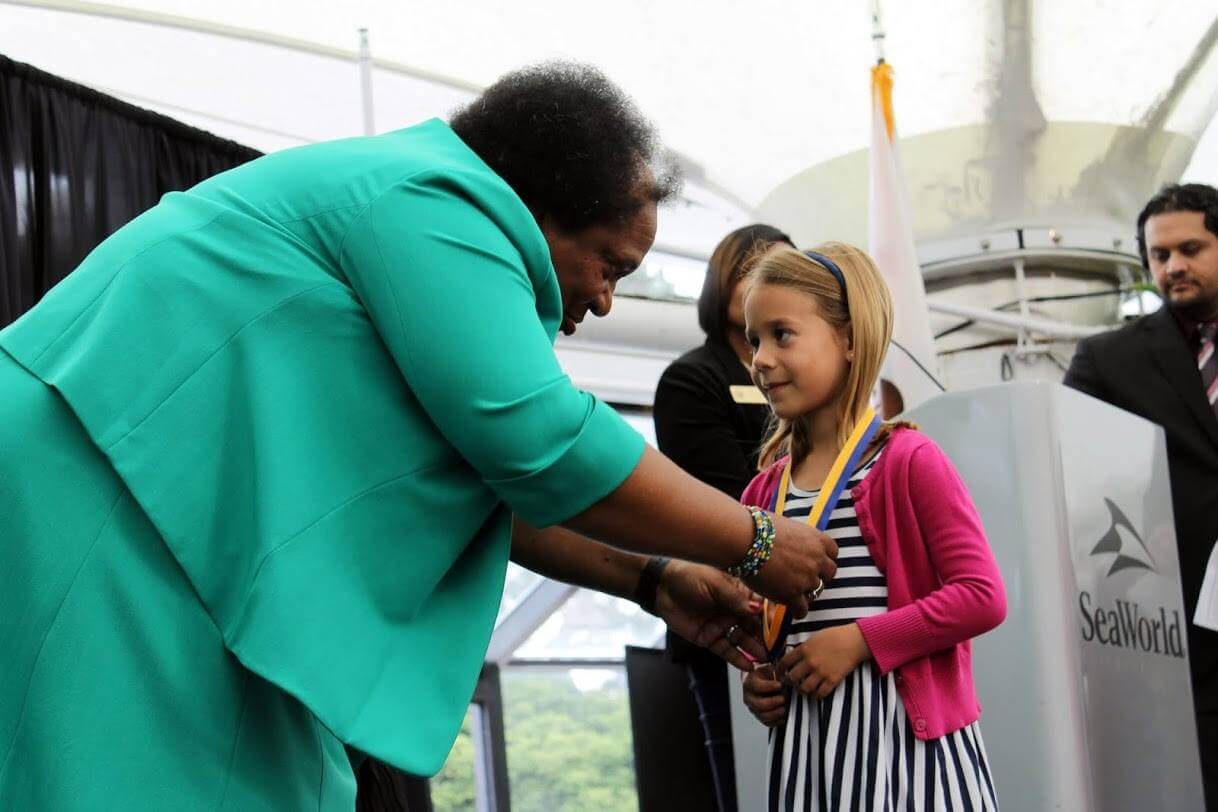
Q: Over the last few months in particular, we’ve seen more women running for office and getting involved in that process. How do you feel that will end up shaping the political sphere in this country?
A: It will only make it a good thing. If we look at some of the strong voices in Congress and the Senate, we see women with really strong voices. Whether it’s Kamala Harris challenging what was happening with the hearings or Maxine Waters reclaiming her time, that went viral and got young people energized about it. We’re finding more and more women are getting organized, they are sometimes more courageous than others. They’re often the voice of our families and our children and we can only find something good and optimistic out of it.
I just helped a group of women establish an organization in San Diego to promote African-American women to run for office and serve on statewide boards and commissions. This organization has taken off and is called BWILD, Black Women’s Institute for Leadership Development. And that goal is to really engage women, we’re finding that more and more folks are becoming engaged. When they think that there’s a group that can support them and help as they think about being a part of the political process, whether it’s holding office, serving as a staff member or being a commissioner somewhere. We anticipate this environment that has now been put out there to be a motivator for women to decide to run and stand up for their families and communities.
Q: Did you face specific challenges as a woman of running for office, particularly a woman of color?
A: When I was on the school board, I was the only person of color. There were four white individuals and myself. Because we were a very urban school district, San Diego has 70 percent kids of color. Every time there was a meeting with a national board or commission, I’d like to believe it was because I was so smart and brilliant but I also had to recognize, when two of us had to go meet with [national board or commission], our superintendent asked me to go and another member. Every time it would always be one of my white board members male or female and Shirley Weber, the only African-American on the team. Mainly because you had to demonstrate diversity so I always tell my colleagues I went to four times more meetings than they did. While they went to one out of four, I went to four out of four meetings.
That’s a challenge, there’s always that issue of representation, and sometimes the same thing falls true in this House. As one of two African-American women in this House, often times I’m the one called on to attend things, to be present, to be accountable. When you sit those rooms and if you’re conscience of your position, you build in that you’re the one who has to raise the issues, not that others don’t care, others don’t see. They don’t have the same frame of reference and as a result you have to raise those issues.
All of my life as an African-American, we have had to basically train our supervisors as if we didn’t want to be the supervisors. I was an African-American who has always been in that position of somebody overlooking me and discriminating against me that my white female counterparts didn’t notice the sexism. Often times when you’re in that position and you come from a different place either because of racism, sexism or economic challenges, you have a unique opportunity to hopefully educate your colleagues about the realities of life and to advocate those who would normally never get a voice. They don’t see the issues not because they’re mean and vicious but because it’s not a part of their world.
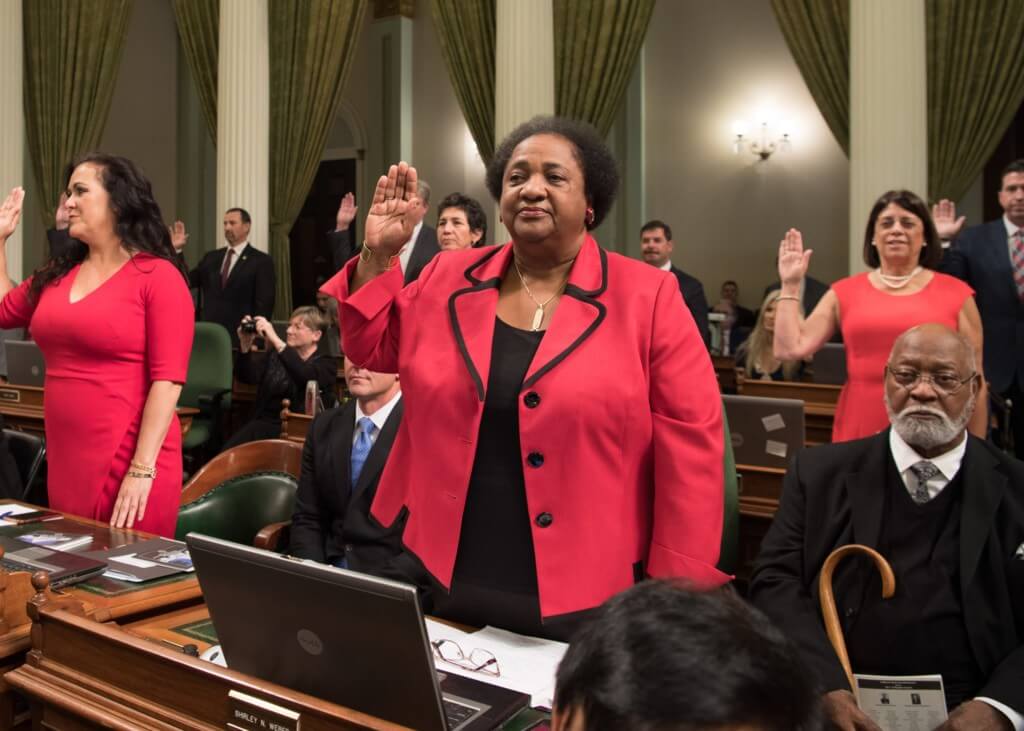
Q: What has been the most rewarding moment in your career thus far?
A: The greatest reward is the empowerment I’ve made to the people I serve. I don’t take my constituents for granted, I’m the first African-American to ever be elected for this position South of Los Angeles. Others in this position haven’t seriously engaged this community, educate or empower this community. When I was asked to run at my age I thought, “Wait a minute, somebody younger should be in cue, ready to run and take this seat.”
But I realized at the time, there was no one of color who could win this seat other than Shirley Weber. And that’s why I ran. I knew there were a lot of issues to be raised, I was enticed by the fact I was an educator. What I’ve done is try and educate the community about the process, what’s happening politically, how do you get engaged so much so that this year a group of women got together, and pretty much took over the Democratic Party in this district.
There’s 44 elected positions, in this district 10 of the 14 positions went to African-Americans, six of the seven were African-American women of all ages, some young and old. Because why? I’ve been educating them on the process. Bringing them into the Democratic Party and helping them understand what I go through. What I have done is to not make this about Shirley Weber, this great woman who runs and can kick butt and take names at the same time. Basically I talk about how am I going to empower women in this district, women of every age, every color, to really stand up and fight.
I feel good when I look around and I see women form these organizations who are applying to boards and commissions, I see them running for office, they’re unafraid. For me that’s the true joy, not just getting these bills passed and fighting the good fight but me as a woman, who’ll be 69, my goal is to make sure I’m not the last African-American serving in a state position in this county. There will be courageous women and we will know how to support each other. If I do anything of significance in this office it will have basically be to empower the people of the 79th to be advocates for themselves and equal partners in decision making.
HOW TO BECOME A POWERFUL WOMEN LEADER
Honor Your Work
“[Celebrating] those women [at the annual ‘Salute to Women Leaders’ event] reminds us as well as reminds the public that women have done some extraordinary things. If we’re going to change anything in regards to creating greater opportunities for women and kids we’re going to talk about women getting involved and engaged,” said Assembly member Shirley Weber.
HOW TO CONNECT WITH ASSEMBLY MEMBER SHIRLEY WEBER
Follow her on Twitter.
Like her Facebook page.

